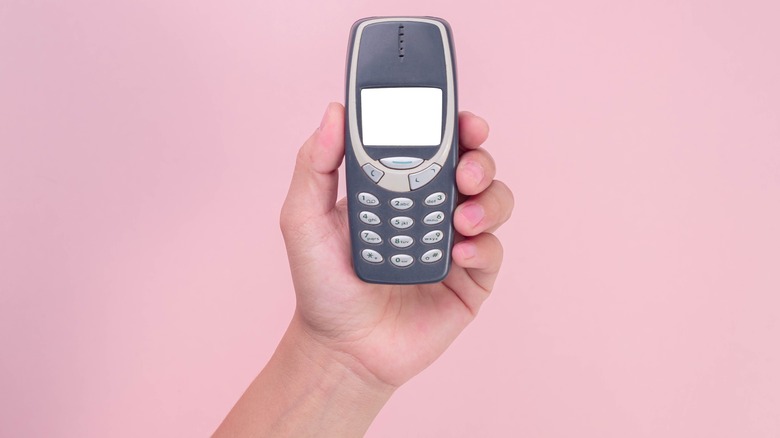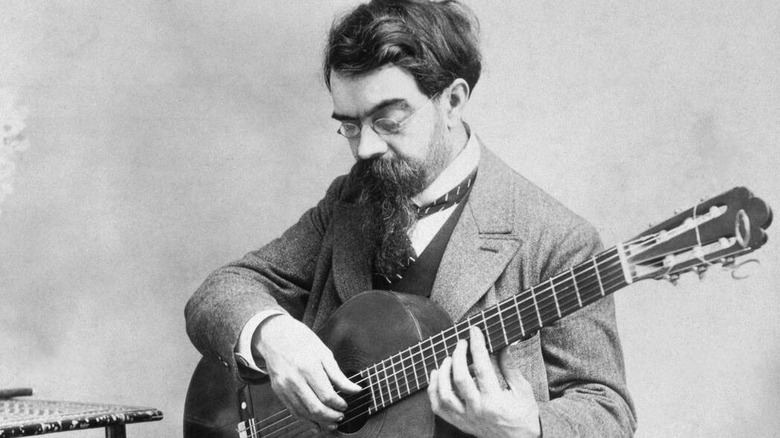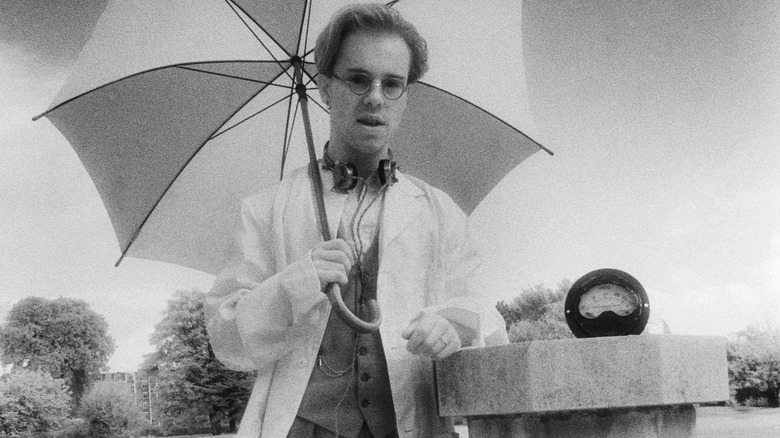Ever Wondered Where The Famous 'Nokia Tune' Ringtone Comes From?
In the era of mobile phone ubiquity, one ringtone has stood the test of time more than any other: Nokia's default ringtone. Apple's iPhone ringtones may have become more ubiquitous, but the Nokia ringtone has been a cellular handset staple for several years longer than the iPhone has been on the market. Though Nokia has fallen from its previous heights atop the mobile phone industry, the catchy little tune is instantly recognizable, which was the case back when it was a series of beeps and bloops instead of a recorded musical performance. By 2011, Nokia even held a contest where it named the best remix of "the Nokia tune."
The Nokia ringtone is so recognizable, in fact, that when Nokia sponsored the commercial-free series premiere of ABC's "Alias" in 2001, the handset maker was rewarded with a bit of very plot-relevant product placement. In the episode's climactic fight scene, the protagonist, Jennifer Garner's Sydney Bristow, uses the very recognizable ringtone as a distraction to get the upper hand. By then, the ringtone was well-known enough that simply having it used prominently a few times in quick succession functioned as some serious product placement for Nokia, which continued to sponsor the series going forward.
Where exactly did that jaunty little tune come from, though? Was it written specifically for Nokia? Was it an employee digging up something they had previously written but not published, like Cisco's ubiquitous on-hold music? Or was it borrowed from a previously published piece of music?
It's actually from a classical composition
The direct inspiration for the Nokia ringtone was a snippet of "Gran Vals," a 1902 song from classical guitarist Francisco Tárrega. (The portion used for the ringtone starts at the 12-second mark of the recording.) With the song being in the public domain without any copyright hurdles to clear, the particular catchy section we all know made plenty of sense to adopt as a ringtone. Various songs had been tested before Nokia put out its first handset with the tune in 1994, but not all were public domain, so it's easy to see why "Gran Vals" made the cut.
However, that's not the whole story. On Nokia phones, in the ringtone selection menu, the signature tune was called "Grande Valse" instead of "Gran Vals." That's because Tárrega took part of the snippet used for the ringtone from Frederic Chopin's composition named, wait for it, "Grande Valse." He added to it, as the Nokia ringtone is not identical to the relevant section of the Chopin song, but it wasn't an entirely original creation on his part.
Enter Thomas Dolby
Another notable musician was involved as well, but not in the way that Frederic Chopin and Francisco Tárrega were. British synth-pop artist turned music technology entrepreneur Thomas Dolby and his team at Beatnik developed the synthesizer used by those early Nokia handsets to play the signature ringtone. "We probably would have gone up in smoke like most of those dot coms, were it not for the fact that the world's largest phone manufacturer, Nokia, came along and licensed the synthesizer that we created," he told the BBC in 2011. "The melody was already their jingle, but the first polyphonic ringtone of it was made by my team."
The man behind 1982's hit single "She Blinded Me with Science" also told the BBC that Nokia initially wanted to use contemporary hit songs for its stock ringtones, only to pivot to classical music when company brass realized how much current songs would cost them in royalty payments. "The lawyers kind of go, 'Wait a minute, you can't just ship music on a phone,'" Dolby further added in a 2013 appearance on "The Nerdist" (now "ID10T"). "'You'd have to pay millions and do deals with Sony and Warner and all the writers and stuff.' And somebody says, 'What about if it's a dead guy?' 'That's probably OK if he's been dead for 75 years.'"
BBC article author Tom Bateman added, "The musician admits that people point at him 'accusingly' when they discover he is 'to blame' for the modern version of the ringtone." Dolby declined to speak about how much money he made off his deal with Nokia. But Bateman wrote that "it might be reasonable to assert that it's probably left him better off than if he'd stuck solely to the notoriously tough world of music."


